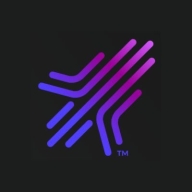

Automic Automation and Rocket Zena are competitors in the automation space. Automic Automation seems to have the upper hand due to its robust features, particularly for complex enterprise environments, while Rocket Zena is praised for its user-friendliness and rapid deployment capabilities.
Features: Automic Automation provides powerful workflow automation, extensive scalability, and deep integration capabilities with platforms like SAP and Oracle. Rocket Zena is notable for its ease of use, simple and intuitive controls, and rapid deployment, perfect for businesses in need of quick implementation.
Room for Improvement: Automic Automation could improve its user interface to make it more intuitive and enhance its deployment process to reduce complexity. There's also room to streamline its integration with third-party tools. Rocket Zena could benefit from expanding its feature set to offer more advanced automation capabilities. It can also enhance its integration depth with large enterprise systems and improve scalability to support larger operations.
Ease of Deployment and Customer Service: Rocket Zena offers straightforward deployment and has a reputation for responsive customer support, making the setup process efficient. In contrast, Automic Automation's deployment is more complex but provides comprehensive customer support, ensuring extensive assistance for users once set up.
Pricing and ROI: Automic Automation involves a higher initial investment yet promises a strong long-term ROI with its scalable solutions, making it suitable for larger organizations seeking robust features. Rocket Zena, offering a lower initial cost and quicker returns, is ideal for businesses prioritizing initial affordability and rapid ROI, aligning with cost-effective strategies.
| Product | Market Share (%) |
|---|---|
| Automic Automation | 7.9% |
| Rocket Zena | 2.5% |
| Other | 89.6% |


| Company Size | Count |
|---|---|
| Small Business | 19 |
| Midsize Enterprise | 14 |
| Large Enterprise | 66 |
| Company Size | Count |
|---|---|
| Small Business | 3 |
| Large Enterprise | 6 |
Automic Automation offers a web-based GUI for high scalability and flexibility, integrating with platforms like SAP and Oracle. It promotes efficient process automation and supports multiple OS environments, benefiting diverse industries with its robust predictive capabilities.
Automic Automation facilitates process automation and workload management, providing valuable integration with applications like SAP and Oracle. It supports a wide range of operating systems and environments, enabling seamless workflow automation. It features a web-based interface accessible across devices, ensuring scalability and flexibility for complex job automation. Users find its predictive capabilities and platform support instrumental in enhancing operations, although improvements are noted in reporting, cloud integration, and documentation. Licensing and pricing structures also present room for optimization, along with workflow dependency management and smoother upgrade paths.
What are the key features of Automic Automation?Automic Automation sees implementation in industries like banking, finance, and telecommunications, where it automates ERP systems, schedules batch jobs, integrates workloads, and manages file transfers. By supporting SAP, Oracle, and ETL tasks, it aids efficiency and workload automation across varied environments including cloud and mainframe systems.
Rocket Zena offers scheduling and dependency mapping, intuitive interface, and containerized deployment. It simplifies workflow automation, enhancing efficiency across platforms.
Rocket Zena's strengths lie in its scheduling capabilities, graphical interface, and efficient deployment. It supports users in task management with cross-platform scheduling, streamlining repetitive tasks through automation. The web-based client facilitates process visualization and workflow management, while the notification system enhances task handling. Users can manage mainframe, Linux, and Windows environments while integrating with SAP and Oracle, ensuring comprehensive automation and efficient job execution.
What are the key features of Rocket Zena?In industries like finance and manufacturing, Rocket Zena plays a vital role in scheduling batch jobs and automating file transfers. It helps adapt task scheduling to business calendars and integrate with existing platforms, ensuring a smooth workflow that meets business objectives.
We monitor all Workload Automation reviews to prevent fraudulent reviews and keep review quality high. We do not post reviews by company employees or direct competitors. We validate each review for authenticity via cross-reference with LinkedIn, and personal follow-up with the reviewer when necessary.